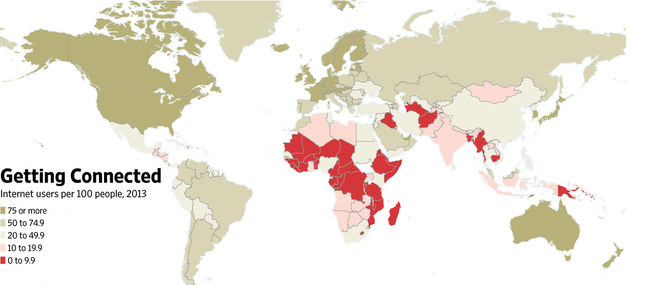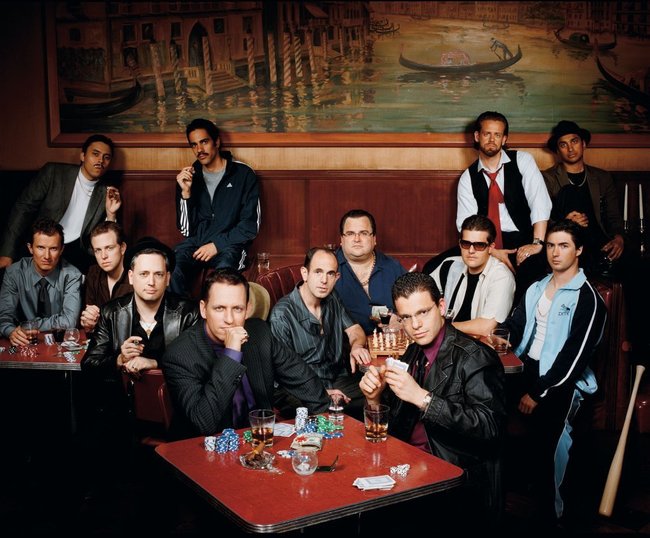Internet Imperialism and the The New Age of Empires

Evelyn M. Rusli of the Wall Street Journal writes, “Tech Companies Struggle to Get World on Internet.” She profiles Indonesia, which only has 16% of it’s 250 million population who have access to the Internet, and the aspiration of tech giants to get more people online and show them the value of the Internet. However, despite the efforts of Google and Facebook to get more people connected (and ultimately monetize through these emerging markets overtime), per a joint report done by McKinsey and Facebook, growth of online world-wide Internet users is actually slowing down.
To much of the developed world, Internet access is practically akin to oxygen. It’s hard for us to imagine life without it. But in the opposite spectrum, people in underdeveloped countries who face very extreme challenges have to go through a lot before they can even recognize the upside of smartphones and online...






